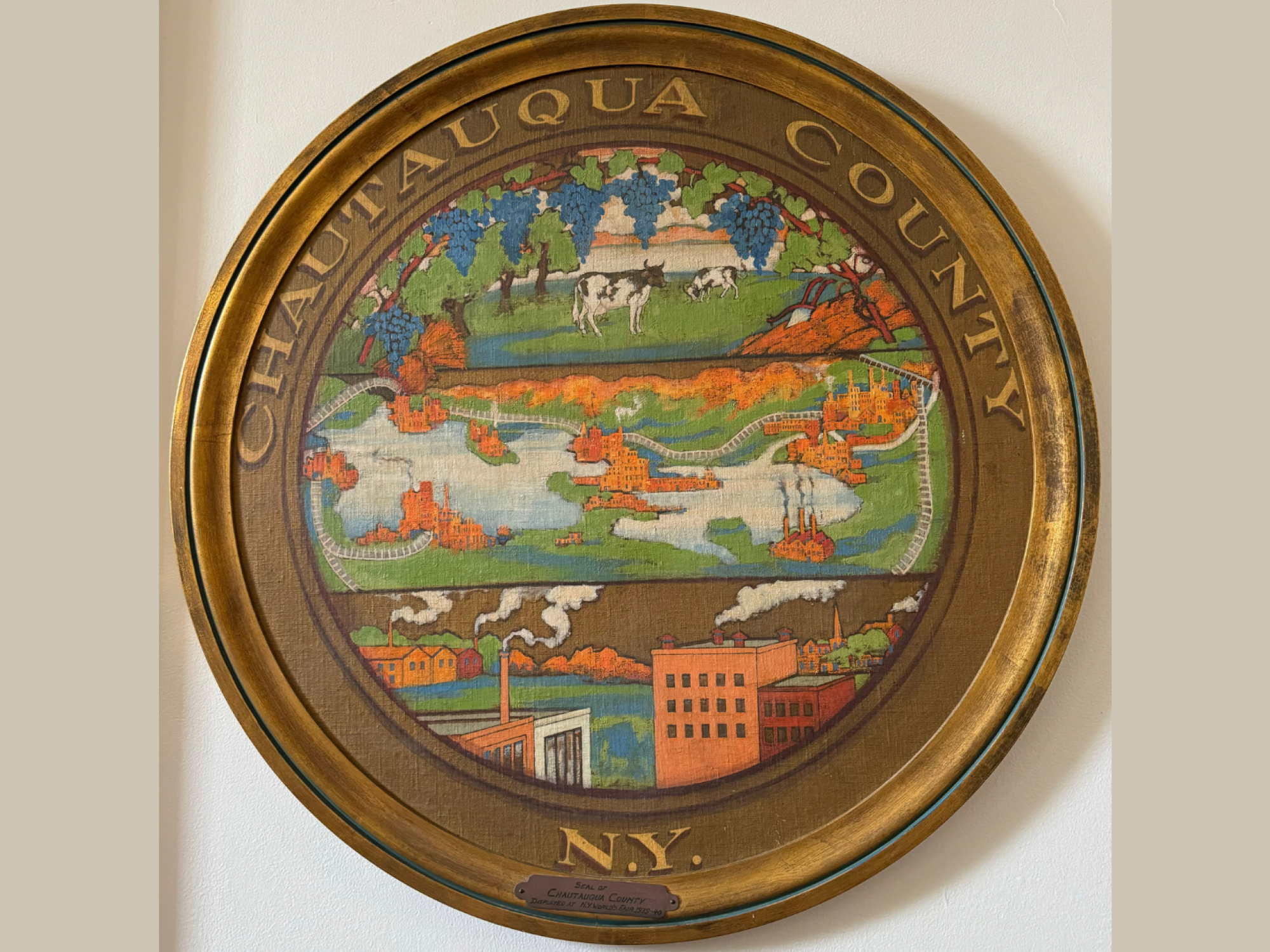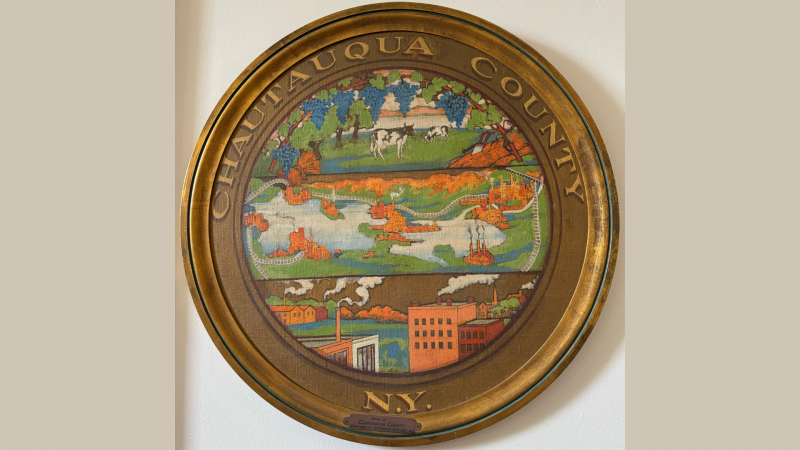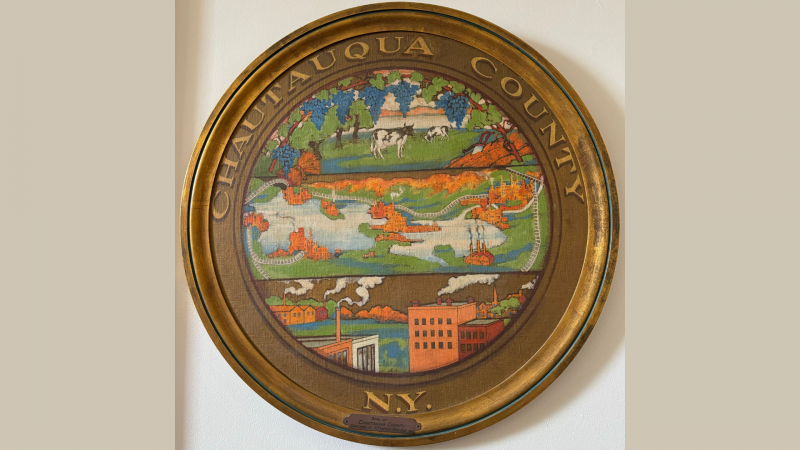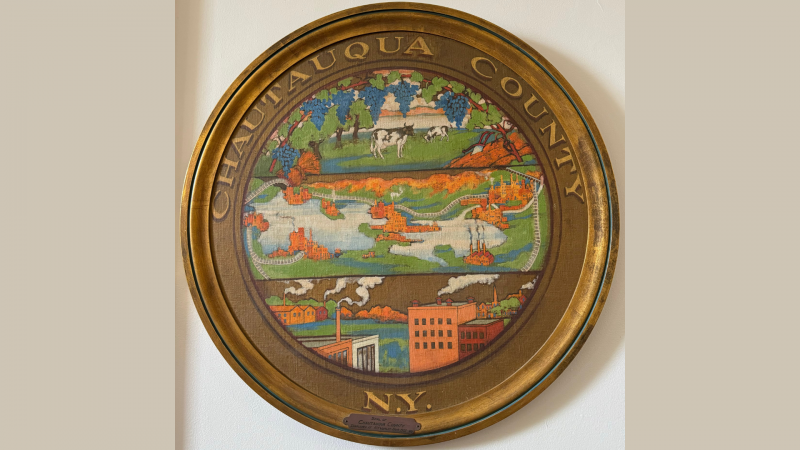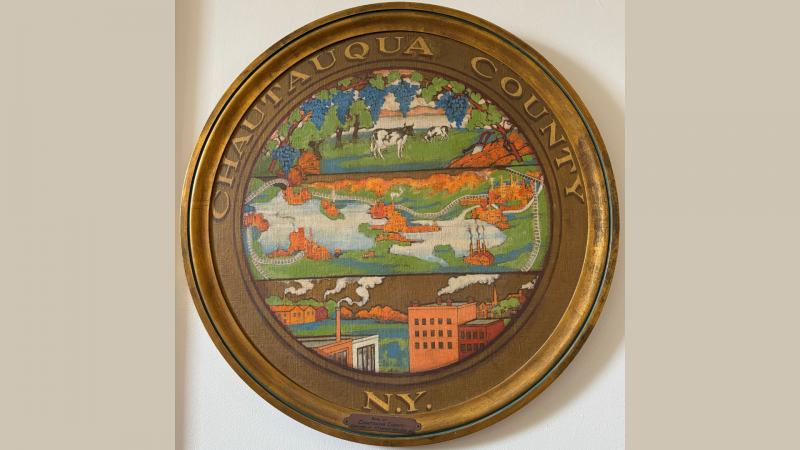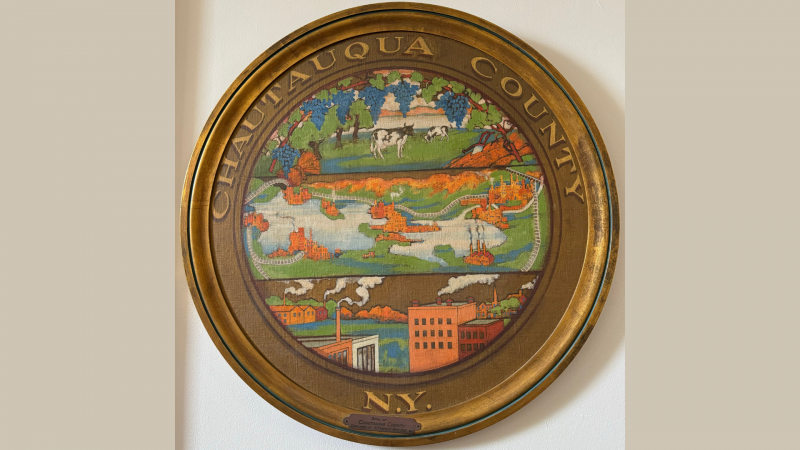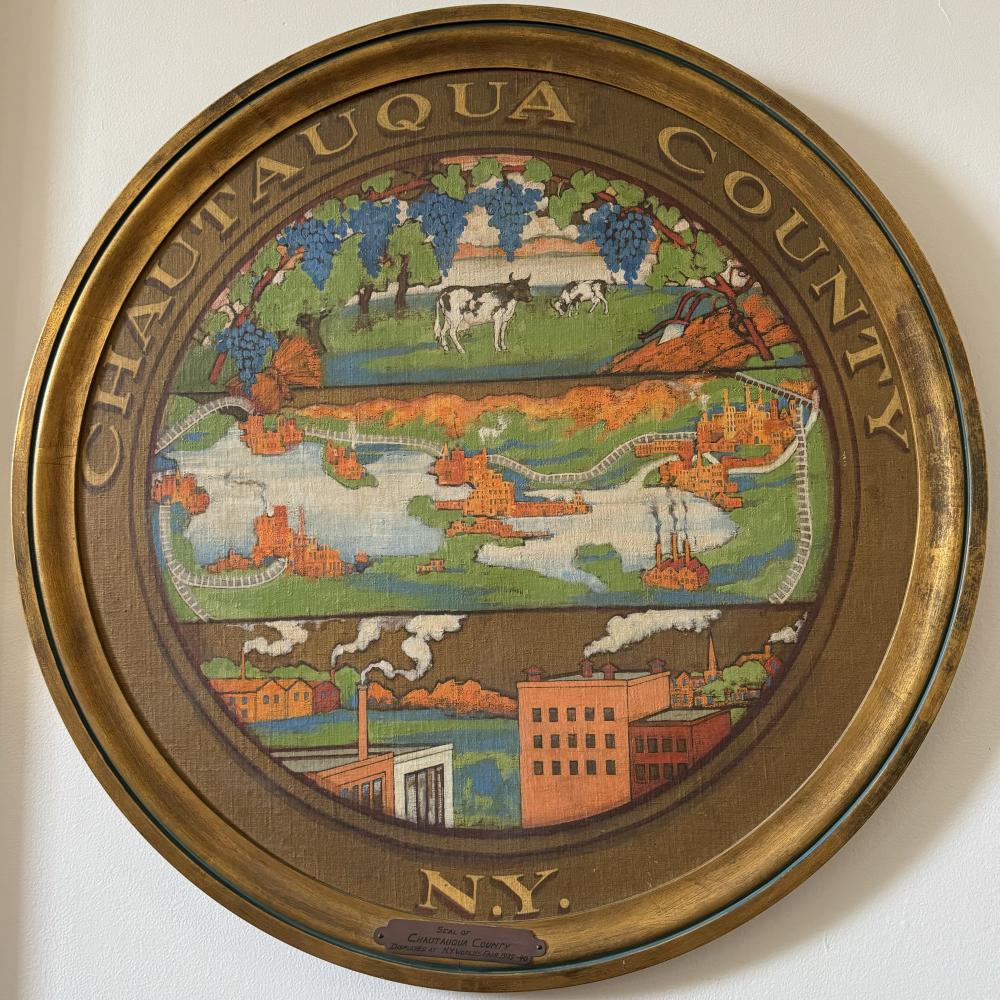
(Seal of Chautauqua County displayed at the New York World's Fair 1939-1940.)
By Norman Carlson, Chautauqua County Historian
Chautauqua County has a deep and fascinating history, and this week’s historical events offer a glimpse into our region's past. From the early settlement days and significant treaties to unique local traditions, these moments continue to shape the identity of our community.
October 20, 1902 – A New Era of Entertainment
The Busti Baptist Church hosted what is believed to be the first movie screening in Busti, accompanied by a "Chautauqua Lecture." This was a pivotal moment as cinema made its way into rural areas, transforming local entertainment options and broadening cultural horizons.
October 21, 1789 – Turned Away at Fort Niagara
Andrew Ellicott, a notable surveyor, arrived with a team at Fort Niagara to begin the first survey of New York’s west line. However, British Lt. Col. John Harris refused them access, claiming, "Too many people have seen the falls already." This incident reflects the tension between British forces and early American settlers as they sought to chart their newly acquired lands.
October 21, 1867 – The Mayville Union School is Organized
Education was always a priority for early Chautauqua County settlers. The formation of the Mayville Union School in 1867 marks one of the early milestones in developing the area’s educational system.
October 22, 1784 – Second Treaty of Fort Stanwix
The Second Treaty of Fort Stanwix was signed on this date, with the Iroquois relinquishing sovereignty over Chautauqua County and other territories. However, this was not the end of their connection to the land, as they reclaimed sovereignty through later treaties. This event marks an important chapter in Native American history and the complicated relationships between Indigenous peoples and settlers.
October 22, 1844 – The Great Disappointment
This was the date set by followers of William Miller, leader of the Second Adventist movement, who believed the world would end. Known as the "Great Disappointment" when it did not happen, the movement still had a significant following in Chautauqua County. Many Millerites later became part of the Seventh-day Adventist Church.
October 23, 1857 – An Earthquake Shakes the Region
On this day, an earthquake was felt throughout the area, a rare occurrence in Western New York. Although it was not devastating, it likely caused quite a stir among the residents.
October 23, 1976 – Stedman Dulcimer Day
Chautauqua County once dominated the dulcimer-making industry in the mid-19th century, producing hammered dulcimers used in dance music. In 1976, the county celebrated its dulcimer-making heritage with "Stedman Dulcimer Day," honoring this unique piece of local history.
October 25, 1870 – Susan B. Anthony Speaks in Jamestown
Jamestown had the privilege of hosting Susan B. Anthony, one of the most prominent figures in the women's suffrage movement. She spoke at the Institute Hall, advocating for women’s rights, a cause that deeply resonated with many in the area and contributed to the growing momentum of the movement.
October 26, 1825 – The Erie Canal Opens
The opening of the Erie Canal revolutionized trade and travel in the region. Transportation costs from Albany to Chautauqua County dropped dramatically, as did delivery times, helping to bolster the local economy and bring new opportunities to residents.
Each of these events showcases the rich and diverse history of Chautauqua County. Whether through advancements in education, unique cultural events, or milestones in women’s rights and Native American history, these moments remind us of the enduring spirit of our community.

